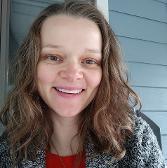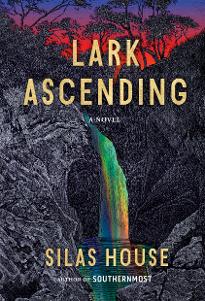Book Review
Dystopian and post-apocalyptic books aren’t really my jam. They stress me out too much. Likewise, the immensity of the ocean has always terrified me. So, imagine me as a reader, 30 pages into Lark Ascending, where our protagonist is a young man fleeing a dystopian and post-apocalyptic United States to cross the violent and deadly ocean to seek refuge in Ireland.
I think the stress of those first chapters aged me at least a year, and I actually put the book down.
Then I attended the Kentucky Book Festival at Joseph Beth Booksellers in Lexington in October and heard author Silas House speak about the story. I immediately went home and jumped back in.
While in conversation with David Arnold at the festival, House discussed the themes in the novel. He said, above all, Lark Ascending is a story about personal and collective grief. Indeed, as the dust jacket declares, Lark is the sole survivor of the trans-Atlantic voyage and loses everyone. In parallel, the larger scope of Lark’s world is collective grief as climate change, war, and repressive religious fascists gaining control over governments causes persecution, violence, death, destruction, and global suffering.
It is not hard as an American to connect to the exploration of collective grief. We have daily mass shootings, deliberately encouraged poverty, a crippling opioid addiction crisis, lack of universal healthcare, underfunded schools, raging misogyny and racism, and more. Anyone paying attention to US politics over the past decade can see how the base fears and hatreds of citizens can be enflamed to the point of folks justifying the repression of freedoms, denial of equality, and enactment of violence on fellow humans.
Moreover, the US is in the midst of an identity crisis, a domestic battle over culture and who will be allowed to live in this nation and how and under whose control. Certainly this makes House’s novel painfully relevant and timely. We see Lark on the other side of it, what it could be like after the “Fundies” get control and what it could be like if their hateful power goes unchecked to the point of becoming authoritarian.
But don’t yet despair.
At the book festival, House declared the novel a “hopeful end-of-the-world scenario.” And it does have a hopeful, happy-ish ending. The book is an elderly Lark telling his life story in recollection, so you know from the beginning this kid is gonna make it to old age. And as House has said publicly to quell readers’ apprehensions, we don’t need to worry about Seamus, the beagle Lark befriends. The dog isn’t killed.
House also said the story is about the desire to feel safe, and as a reader living in this point of US history, where the feeling of safety is continually under threat (from my neighbors trying to prevent LGBTQ+ liberation and revoke women’s equality each time they go to the voting booth, to dropping my kids off at public schools every morning knowing it is completely possible they could be victims of a shooting before lunch time) I can certainly connect to the characters seeking safety throughout the story.
In the middle of the book, Lark says the survival skills he learned seemed in conflict, that the search for safety oscillates between two decisions: to keep moving or to be still.
The first was to Keep Moving, to never give up. This had always been my parents’ mantra, usually articulated in the times when neither of them thought they could go on, but somehow always found the strength to do so when they uttered this little sentence, as if the two words themselves supplied energy that kept them moving.
The second was Be Still. This was more often something my mother had whispered in times of upset and when we had to hide. Or times when we needed to collect ourselves so that we didn’t lose our minds. I remembered her, cooing the words to me. A whisper, really. A prayer. Be still. And in its own way this was an instruction on not giving up, too (121).
Lark Ascending is a love letter to those who don’t feel safe where they are, especially when being threatened by outside forces because of who they are, what they believe, or whom they love.
I didn’t know what there was to believe in, but I had always felt there was something, humming in the air around us, even if I couldn’t name it. . . . Now that I am an old man, I know that there is much to believe in, although I do not have a single word for it the way some people do. To be too certain about belief is a dangerous thing (102).

Melissa Helton is Literary Arts Director at Hindman Settlement School in eastern Kentucky where she coordinates creative writing and literature programming for the community and area schools. Her work has appeared in Shenandoah, Appalachian Journal, Norwegian Writers Climate Campaign, Anthology of Appalachian Writers, and more. Her poetry chapbooks include Inertia: A Study (2016) and Hewn (2021). She loves everything about books and reads at least 100 a year.
_____________________________________________
Home Archives Fiction Poetry Creative Nonfiction Interview
Featured Artist Reviews Multimedia Masthead Submit
_____________________________________________

